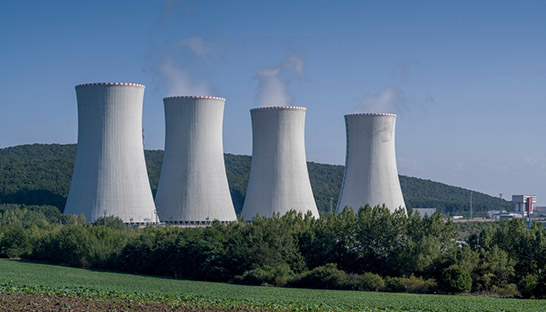
Though prioritising nuclear can be a significant mistake, it might have potential in a assist function, as insurance coverage in opposition to the long-run dangers of a completely renewable system, writes Richard Bolt, a Principal at Nous Group.
Many years in the past, the nuclear disarmament motion efficiently pushed for deep cuts within the nuclear arsenals of the USA and Soviet Union. It additionally opposed nuclear vitality, arguing it was susceptible to catastrophic accidents, radioactive waste leaks and the diversion of gas by rogue nations and terrorists into makeshift bombs. I used to be a part of that motion.
Because the US-Soviet Chilly Battle ended within the late Nineteen Eighties, the specter of nuclear battle started to recede whereas local weather change issues grew. Nuclear vitality was banned right here in 1998 in a political deal. Our coal fleet was youthful and web zero wasn’t a goal, so it was an vitality supply we didn’t appear to wish.
Nuclear dangers haven’t gone away. The accident that disabled Japan’s Fukushima reactor catalysed the closure of a lot of its nuclear fleet. Everlasting nuclear waste disposal has not commenced. Iran desires a nuclear arsenal and North Korea has one.
A contributor to the vitality transition?
Nevertheless, many nations have used nuclear vitality safely for many years, and it now has far more worth: as a baseload, zero-carbon, large-scale supply of electrical energy. Many nations with massive populations and restricted vitality assets see nuclear as an essential, if partial, contributor to their decarbonisation plans.
Australia, in contrast, has a small inhabitants, massive renewable assets and no actual expertise with nuclear energy. Though the case for a ban has misplaced drive, the case for making nuclear a excessive precedence lacks drive too, for a number of causes.
First, there’s broad settlement that nuclear can be costly and late. We’d begin from scratch on a protracted and gradual studying curve. Even earlier than a sod may very well be turned, we would want to construct a supply physique, a specialised development business and workforce, complicated provide chains for inputs and waste, and develop rules. And earlier than that, we’d have to construct sufficient group belief and political consensus to cross laws by way of a parliament that no authorities is more likely to management.
Second, a plug-and-play plan – swapping at the moment’s coal crops for reactors – is a compelling concept however onerous to ship. Many coal crops received’t function reliably for lengthy sufficient, their transmission strains will more and more carry renewable energy, and the land and water they use have competing claims. Buffer zones round cities want to fulfill completely different group expectations and security requirements.
Third, nuclear received’t solely be late to start out, it might even be gradual to develop. To begin constructing a second plant properly earlier than the primary is completed can be dangerous, till first-of-kind faults have been fastened. Expertise would finally enable parallel initiatives to proceed, however this isn’t more likely to be till the second half of the century.
Fourth, it’s inconceivable that we will meet our Paris Settlement commitments to decarbonisation if we gradual renewables, lengthen coal and improve baseload fuel till nuclear comes on. The one method to meet our pledges is to speed up renewables, transmission and storage, and construct sufficient gas-fired peaking capability to run often as the ultimate backup.
Fifth, nuclear received’t assist transition our exports from fossil fuels to wash vitality, or to chemical substances and mineral merchandise made with clear vitality. Our buying and selling companions look to Australia to assist them decarbonise with our world-class photo voltaic, wind, fossil gas and carbon storage assets. Nuclear energy has no aggressive export function for the foreseeable future.
An add-on to renewables
So we should push on with renewables, which can create one other problem. The output of large-scale nuclear crops is rigid, thus onerous to combine right into a grid that carries massive volumes of variable wind and photo voltaic vitality. Integration will incur prices of extra transmission and storage, and extra curtailment of wind and photo voltaic.
It’s true that renewables are proving onerous to deploy as rapidly and cheaply as web zero requires. Provide chains are tight, gear prices have risen, and the assist of regional communities might be onerous to win. However these aren’t causes to wave a white flag. Renewables with firming are one of the best various to baseload coal for no less than 20 years, and we’re studying easy methods to have interaction communities as companions and beneficiaries.
Though prioritising nuclear can be a significant mistake, it might have potential in a assist function, as insurance coverage in opposition to the long-run dangers of a completely renewable system.
Regardless of the expansion of renewable vitality, the highway to web zero is a protracted one. Many of the process of changing coal nonetheless lies forward, and we’ve got not made vital inroads into oil and fuel use. We should provide the additional demand of a a lot bigger inhabitants in 2050. Even with vitality effectivity positive aspects, a really massive rise in energy demand should be met.
Additionally, we’ve got not but labored out easy methods to hold a largely renewable grid safe in actual time, nor easy methods to retailer and shift renewable vitality throughout seasons and years.
These challenges have to be tackled properly earlier than nuclear might assist, however success isn’t assured. And future communities might be pleased about the choice to make use of nuclear to scale back the intensive modifications in land use that renewables require.
We must always not make nuclear the principle sport, however it might be smart to work out whether or not and the way it would possibly contribute in the long term.
In regards to the creator: Richard Bolt is a Principal at Nous Group and a member of the Steering Committee of Internet Zero Australia.







